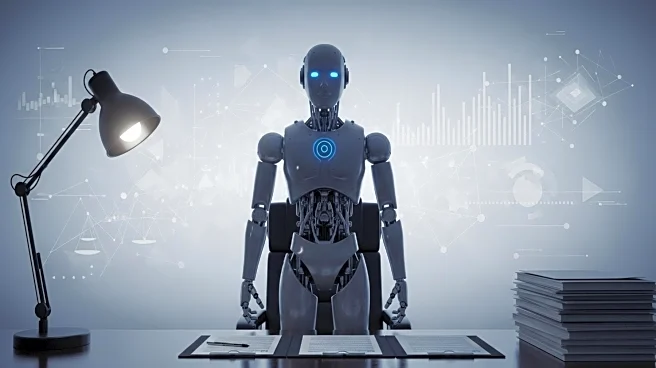What is the story about?
What's Happening?
The integration of AI in hiring processes is raising legal and ethical concerns for HR departments. As AI tools become more prevalent in recruitment, questions about potential biases and discrimination have emerged. The ongoing discrimination case against Workday highlights the risks associated with AI-powered screening tools, which may inadvertently create 'disparate impact' claims under employment law. HR leaders are urged to understand the technology and implement regular audits to ensure fairness and compliance.
Why It's Important?
The use of AI in hiring is transforming recruitment practices, offering efficiency and data-driven insights. However, it also presents challenges related to bias and accountability. HR departments must navigate these complexities to protect their organizations from legal liabilities. The case against Workday serves as a reminder of the importance of transparency and oversight in AI applications, emphasizing the need for robust governance frameworks to manage AI's impact on employment practices.
What's Next?
As AI continues to evolve, HR leaders will need to stay informed about regulatory developments and best practices for AI integration. Companies may need to invest in training and resources to ensure their HR teams can effectively manage AI tools. The outcome of the Workday case could influence future regulations and industry standards, shaping how AI is used in recruitment and other HR functions.















